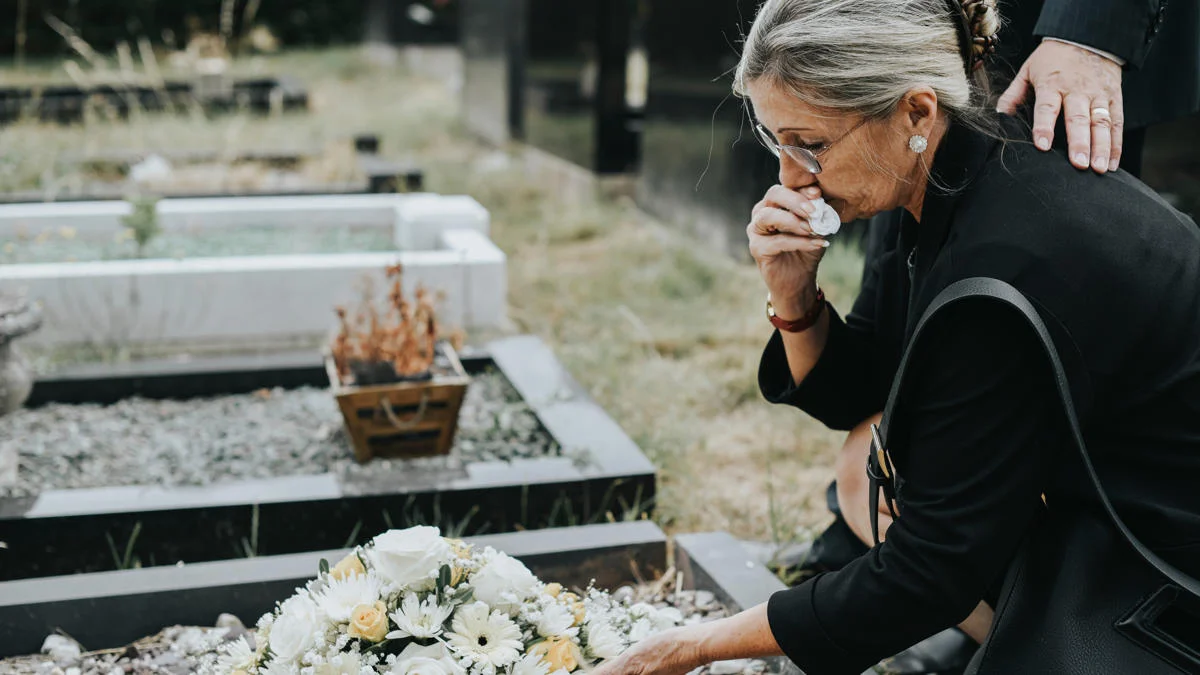Widowhood is the state or condition of being a widow after a spouse has died.
Widowhood can be challenging for many, as it is a time of great sorrow and grief. However, it can also be a time of newfound strength and personal growth as the widow finds the courage to face the future without their spouse.
Disclosure
All materials and intellectual property are copyrighted by MillionaireSeries.com®.
This information is for educational purposes only. It is not intended to replace any advisor or specialist or provide any investment, financial, tax, retirement, planning, or healthcare advice.
By reading this, you agree to hold MillionaireSeries.com® and its affiliates harmless for results achieved or not achieved.
How to Prepare and Survive the Death of a Loved One
Many people ask, “What is widowhood?” While it is essential to understand the meaning, preparing for it is just as important.
While there is no universal way to prepare for the death of a loved one, you can take steps to help you and your family cope with the loss.
1. Discuss Feelings and Emotions
Talking about your feelings with family, friends, a support group, or a counselor is often helpful when you lose a partner. Many survivors find that church support groups are a great place to share feelings and create a network of people to help them get through the grieving process.
If you have additional questions regarding your situation or other financial matters, click here:

2. Make a plan.
The best time to make a plan is before death occurs; the next best time is right now. Instead of beating yourself up or analyzing why you have not taken the time to create a plan, use your energy and time to create one. Afterwards you can better approach your problems.
While a financial plan is essential, you also want to include an end-of-life plan that provides your desires, including funeral or memorial service arrangements.
Your estate plan is a critical component of your overall strategy. Depending on your situation, a typical plan may include a trust or a will, medical power of attorney, financial directives, and other documents.
3. Seek Support

There are numerous support groups available for widows (women who have lost their husbands) and widowers (men who have lost their wives). Take the time to research the groups until you find one that meets your needs and where you feel supported and safe. As a result of finding the right group, they can better support you through this difficult time.
Some groups can provide emotional support, practical advice, and a much-needed social outlet. You can search online for support groups, ask hospice for recommendations, or contact churches or places of worship in your community.
4. Take Care of Yourself.
It is essential to take care of yourself emotionally, physically, and financially during a life transition.
This means getting enough sleep, eating healthy foods, exercising as well as practices such as meditation and yoga, which help to quiet and calm your mind, especially during stressful times.
5. Seek Professional Help

If you are finding it difficult to cope with your grief, seek professional help from a coach or therapist. Your financial advisor, attorney, or place of worship should be able to provide recommendations for a qualified counselor or coach.
No matter how you choose to prepare for the death of a loved one, it is essential to do what feels right for you. While there is no wrong way to grieve, if you are experiencing depression or suicidal thoughts at any time, seek professional help immediately. If you are not experiencing progress after six months, it is recommended that you seek professional support.
Conclusion – “What is Widowhood?”
Widowhood can be challenging, lonely, and even depressing.
Finding support through your place of worship, friends, family, or a professional can help make the experience more manageable and less painful. These five simple steps will help you move forward in the next chapter of your life. As a result you can be you’re best self.
Download the free End of Life Checklist here:

